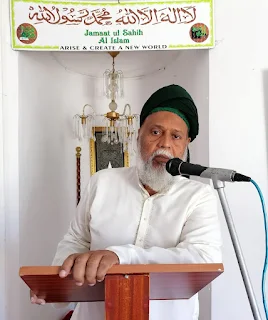The profound message of the Eid-ul-Fitr
Eid-ul-Fitr,
celebrated at the end of the blessed month of Ramadan, is one of the most important festivals for us, Muslims. It
marks the end of fasting (Roza/ Sawm) after a month of physical
restraint, spiritual reflection, and devotion. This day is a moment of
gratitude to Allah for the blessings we have received, as well as an
opportunity to strengthen our social, familial, and community bonds. The word ‘Eid’
itself means something that recurs, repeats, or a recurring event that brings
happiness and a festive atmosphere. It represents an occasion that reappears
after a certain period, bringing moments of joy and blessings. Essentially, the
term “Eid” symbolises a moment of communal celebration, uniting or
connecting a group in happiness and gratitude.
In the Quran, the word “Eid” is directly
mentioned in Surah Al-Maida – Chapter 5, Verse 115. In the context of this
verse, we see how the disciples of Hazrat Isa (as) asked Allah to send down a
table laden with food from the heavens as a feast (Eid) for them, marking
it as a day of celebration and a sign of His grace.
Here, we observe how Allah not only blessed
Hazrat Isa (as) and his disciples with material provisions but also granted
them spiritual sustenance, which was continued and perfected in Islam with the
arrival of our beloved Prophet, Hazrat Muhammad (pbuh).
Thus, beyond festivities, feasts, and
gatherings with family and the community, this day carries a profound message:
that each Muslim should continue to lead a pious life in accordance with the teachings
of Islam. It highlights a way of life rooted in spiritual, ethical, and moral
values, which each believer should strive to follow throughout the year, not
just during Ramadan.







